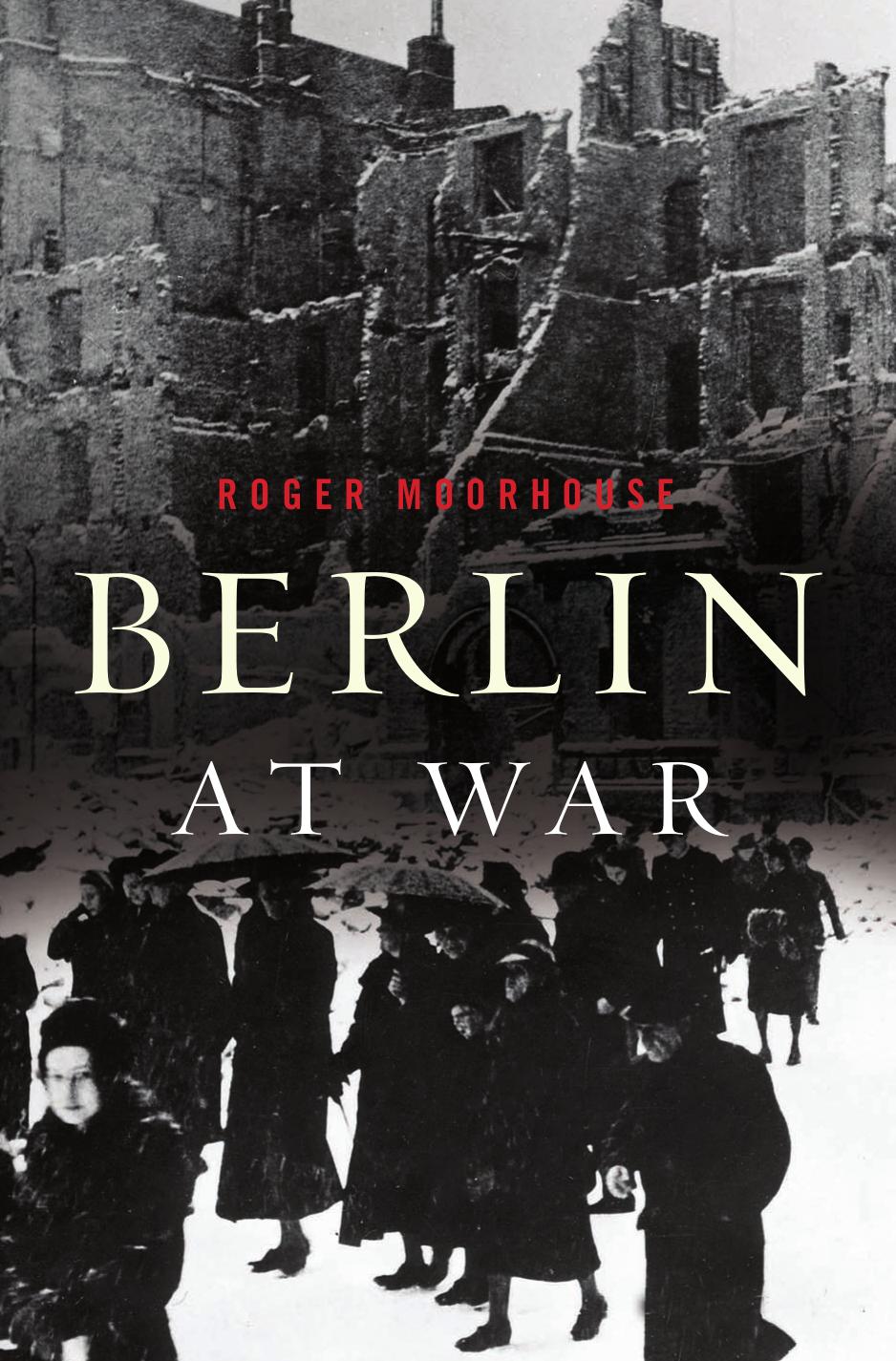Berlin at War by Roger Moorhouse

Author:Roger Moorhouse
Language: eng
Format: epub, pdf
ISBN: 9781446499214
Publisher: Vintage
* * *
The Gestapo, or Geheime Staatspolizei – Secret State Police – stood at the very heart of the Nazi regime. Synonymous – along with the SS – with the Nazi ‘terror’, its origins were rather more mundane. It had been established in 1933, emerging out of the old Prussian political police, and had subsequently taken its place among the constellation of acronyms that populated the German police network. Along with the criminal police, Kriminalpolizei (or Kripo), which investigated serious criminal cases, the Gestapo fell under the umbrella of the security police, the Sicherheitspolizei (or Sipo). Regular, everyday policing, meanwhile, was handled by the so-called order police, the Ordnungspolizei (or Orpo). By 1939, all of these organisations, which operated nationwide, were subordinated to the Reich Main Security Office, the Reichssicherheitshauptamt (or RSHA), and ultimately, Heinrich Himmler’s SS.
But the Gestapo was not just another police unit. Its primary role was to act as a political police force – to investigate and combat all activities that were deemed dangerous or inimical to the Nazi state. It did not, however, practise the same randomised persecution and killing that had been witnessed in Stalin’s Soviet Union. The Gestapo ‘terror’ was not random. It did not kill by quota, or terrorise its would-be victims by its own unpredictability or caprice. It was very targeted, seeking to weed out political criminals and focus very specifically on those whom the regime decreed to be ‘undesirable’. A glance at its internal structure illustrates very well the threats that it perceived. There were sections devoted not only to the ‘usual suspects’ of socialists, communists, gypsies and Jews, but also to liberalism, Freemasonry, ‘Political Catholicism’, sabotage and forgery.
In combating these threats, the Gestapo was permitted to operate outside the law if necessary. As a political police force, it served the Nazi regime rather than the established judicial process, and in order to function effectively it had to have free rein to arrest and imprison suspects without recourse to the norms of law, which were seen to be lagging behind the more immediate demands of the Nazi revolution. The Gestapo, therefore, did not derive its authority from the grand traditions of German justice, or even from the narrower requirements of the administrative machine. Rather, its power came from Hitler himself. It answered – ultimately – to no one but the Führer.
In order to better understand how the Gestapo worked, it is essential to grasp the Nazi concept of justice. Unlike the Western legal tradition, Nazi justice was not blind: prejudice, in the literal sense of the word, as prior judgement, was one of the central tenets of the new legal thinking. When investigating a crime, therefore, the Gestapo would minutely examine not only the circumstances of the offence itself, but also the racial and social background of the suspects. Nazi theory held that supposedly inferior racial groups, such as Jews, gypsies and Slavs, had a natural predilection towards crime. Whereas it was thought that Aryan criminals might possibly be redeemed, rehabilitated
Download
This site does not store any files on its server. We only index and link to content provided by other sites. Please contact the content providers to delete copyright contents if any and email us, we'll remove relevant links or contents immediately.
| Africa | Americas |
| Arctic & Antarctica | Asia |
| Australia & Oceania | Europe |
| Middle East | Russia |
| United States | World |
| Ancient Civilizations | Military |
| Historical Study & Educational Resources |
Flight by Elephant(1523)
The Rise and Fall of the Third Reich: A History of Nazi Germany by William L. Shirer(1399)
Unbroken: A World War II Story of Survival, Resilience, and Redemption by Hillenbrand Laura(1134)
German submarine U-1105 'Black Panther' by Aaron Stephan Hamilton(1046)
Last Hope Island by Lynne Olson(960)
A Bridge Too Far by Cornelius Ryan(948)
War by Unknown(943)
The Victors - Eisenhower and His Boys The Men of World War II by Stephen E. Ambrose(919)
Rogue Heroes: The History of the SAS, Britain's Secret Special Forces Unit That Sabotaged the Nazis and Changed the Nature of War by Ben Macintyre(908)
The Guns at Last Light: The War in Western Europe, 1944-1945 by Rick Atkinson(904)
0060740124.(F4) by Robert W. Walker(892)
The Hitler Options: Alternate Decisions of World War II by Kenneth Macksey(882)
The Railway Man by Eric Lomax(872)
All the Gallant Men by Donald Stratton(839)
Hitler's Vikings by Jonathan Trigg(836)
A Tragedy of Democracy by Greg Robinson(829)
Churchill's Secret War by Madhusree Mukerjee(824)
The Battle of Berlin 1945 by Tony Le Tissier(820)
Hitler's Armies by Chris McNab(805)
